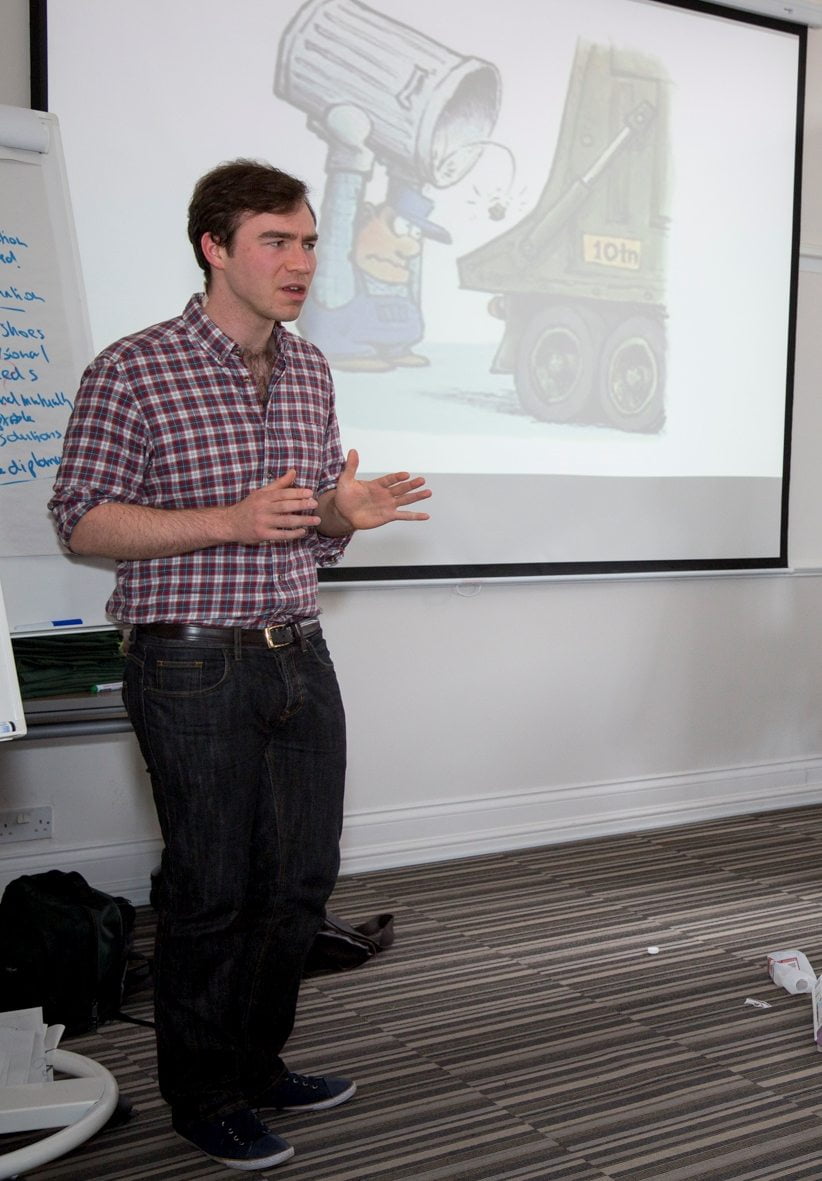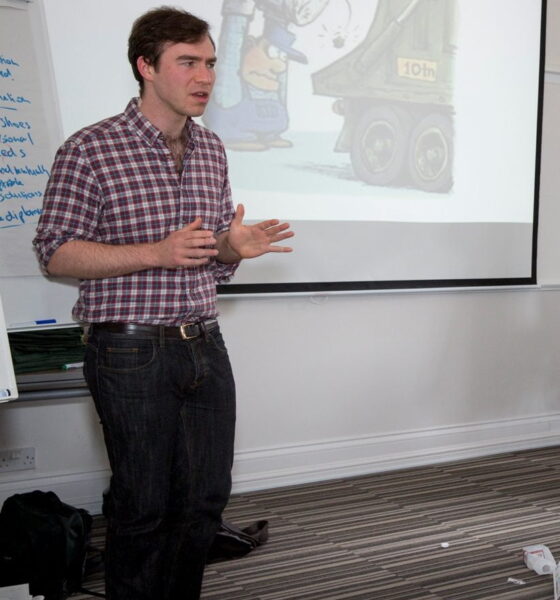

Economy
Future sustainability leaders: Sam Gillick
What will business look like in the future and who are our future leaders?
Over the next few weeks, we’ll be speaking with a group of young people making waves in sustainability. All 12 are scholars on Forum for the Future’s renowned master’s course in leadership for sustainable development.
Next is Sam Gillick, who is currently on a six-week placement with ClimateCare.
Tell us about your experience on the Forum for the Future master’s course. What have your placements involved?
My experience has been so diverse! I started off at the UK Department for Environment, Food and Rural Affairs (Defra) looking at food security. I saw what central government was really like and even watched ministers answer questions in the Houses of Parliament.
My next placement was at Reckitt Benckiser (RB). It’s the company behind brands such as Nurofen and Vanish. I learned about the culture in a global fast-moving consumer goods company and it was an eye-opener.
After that, I was at Willmott Dixon, the building contractor. I investigated potential suppliers about how well their insulation products performed related to what they said in their promotional material.
At the moment, I am at ClimateCare, a climate finance company working with climate and development projects. It’s a small business with a big impact. So yeah, very diverse.
Where does your interest in sustainability come from?
Growing up, my mum always encouraged me not to waste anything and make sure I turned off my computer when I wasn’t using it. I didn’t realise that sort of behaviour was part of the answer to some of the sustainability challenges we face today such as resource scarcity and global warming. When I did realise at an internship during a summer holiday at university, it just felt like home.
What is the best piece of advice you’ve been given during your course?
During my time at RB, the head of sustainability there told me that he was wading into an issue about chemicals regulation that wasn’t necessarily his responsibility, because otherwise it might not be sorted. It sounded quite dull to me.
When I asked him how he was able to show that leadership in getting involved beyond his role, he told me that he always manages to find something about everything he does that interests him so he wants to do it. Now I try to do the same. It’s harder than it sounds, though.
What’s the most important business lesson you’ve learnt?
I’ve learnt that integrating sustainability into business practices takes time. The saying, “If you want to go fast, go alone. If you want to go far, go together“, is well-known and perhaps overused. However, it is definitely worth keeping in mind for any business. Many of the placements that my fellow scholars and I have experienced show that long-term successes have been achieved by company-wide support, not individual actions or policies.
What one idea do you think could change the world for the better?
Reliable storage for renewable energy. With it, we could use solar power when it’s dark and wind energy when it’s still.
What do you see of the future in terms of sustainability, business and the environment?
I see businesses being crucial to our continued existence on this planet by operating in a more circular economy: thinking about their products and services as a cycle of resources that feeds into itself rather than a line from extraction to disposal. The innovation and competition of the private sector, enabled by firm but supportive governments, will create the change needed for society to thrive within environmental limits.
Where will you be in 10 years’ time?
Influencing climate and environment policy development for the better.
Further reading:
Future sustainability leaders: Patrick Elf
21st century leadership: from business as usual to business as a force for good
Has CSR reached its sell-by date?
The business case for sustainability – an exceptional Forum for the Future event


 Features11 months ago
Features11 months agoEco-Friendly Cryptocurrencies: Sustainable Investment Choices

 Energy11 months ago
Energy11 months agoThe Growing Role of Solar Panels in Ireland’s Energy Future

 Energy10 months ago
Energy10 months agoGrowth of Solar Power in Dublin: A Sustainable Revolution

 Energy10 months ago
Energy10 months agoRenewable Energy Adoption Can Combat Climate Change




























